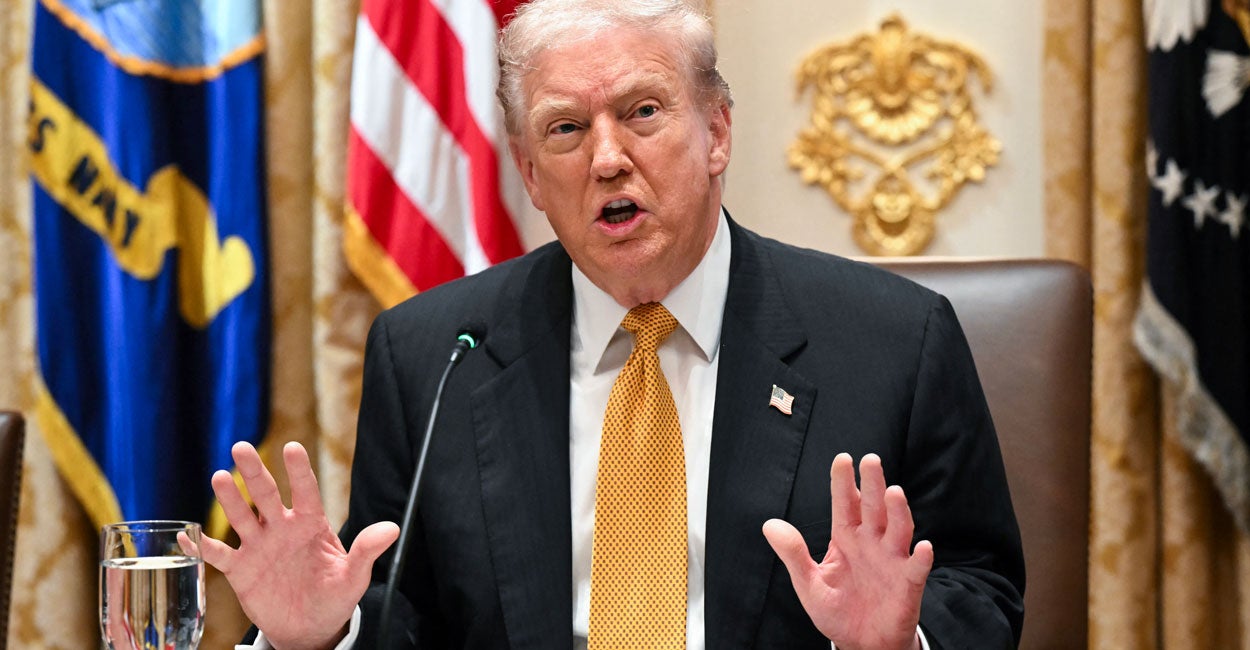InternationalNews
News
PoliticsNews
PoliticsNews
SecurityNews
SecurityNews
LawCommentary
LawNews
InternationalCommentary
SecurityNews
InternationalNews
SecurityCommentary
Health CareNews
News
PoliticsNews
News
PoliticsNews
PoliticsNews
PoliticsNews
PoliticsNews
International Commentary
International News
International SecurityNews
PoliticsCommentary
PoliticsCommentary
PoliticsCommentary
PoliticsAnalysis
Politics Analysis
EconomyHealth CarePoliticsSociety Commentary
Commentary
Politics Commentary
Society Commentary
InternationalNews
(SAUL Loeb/AFP via Getty Images)
Virginia Allen / @Virginia_Allen5
Virginia Allen is a senior news producer for The Daily Signal and host of “The Daily Signal Podcast” and “Problematic Women.” Send an email to Virginia.
When Deborah Samuel Yakubu’s Muslim classmates stoned her to death and set her body on fire outside her college in northern Nigeria in 2022, Nigeria was no longer on America’s list of counties of “particular concern.” The Biden administration removed Nigeria from the list of nations with religious freedom concerns in 2021 despite reports of ongoing persecution of Christians.
Yakubu, a 22-year-old Christian, was accused of sharing “blasphemous” statements about Islam over the messaging application WhatsApp. Muhammadu Buhari, the president of Nigeria at the time, condemned the stoning and called for an investigation. Two individuals were arrested for the crime, but were later released after never having been convicted.
Still, Nigeria remained off the U.S. list of “Countries of Particular Concern.”
The Biden administration put “no real pressure” on Nigeria’s government over the persecution of Christians, and so the leaders of the African nation acted “like there was no problem,” Sean Nelson, senior counsel for Global Religious Freedom with Alliance Defending Freedom International, told The Daily Signal.
Nelson has spent years of his career at ADF International advocating for Christians in Nigeria and has been calling on the U.S. government to return Nigeria to the list of nations of “particular concern” since it was removed four years ago.
It is estimated that more than 50,000 Christians have been killed in Nigeria since 2009, and about 7,000 in the first half of 2025 alone, most at the hands of either Boko Haram or Muslim Fulani militants.
Finally, at the end of October, President Donald Trump announced he would again add Nigeria to the list.
Trump “didn’t just tell [Secretary of State Marco Rubio], ‘Hey, put the word Nigeria in a press release, and then have a press conference about it,’ he said, ‘I want action,’” Nelson explained.
“I am asking Congressman Riley Moore, [R-W.Va.,] together with Chairman [of the House Appropriations Committee] Tom Cole and the House Appropriations Committee to immediately look into this matter, and report back to me,” Trump wrote on social media on Oct. 31.
“The United States cannot stand by while such atrocities are happening in Nigeria, and numerous other Countries,” Trump continued. “We stand ready, willing, and able to save our Great Christian population around the World!”
Trump, according to Nelson, is asking Congress to use the powers of the International Religious Freedom Act of 1998 to hold Nigeria accountable for its failure to protect Christians from persecution.
The International Religious Freedom Act declares it to be the policy of the U.S. to “condemn violations of religious freedom, and to promote, and to assist other governments in the promotion of, the fundamental right to freedom of religion,” according to the act.
The bill further seeks “to channel U.S. security and development assistance to governments that are found not to be engaged in gross violations of the right to freedom of religion.”
Nelson says that for him, it feel like “one of the very rare times that since the [International Religious Freedom Act] was enacted, that we’re actually using the designation, we’re actually using the tools and the bully pulpit of the presidency to do exactly what was envisioned 27 years ago in 1998, which is to hold countries accountable and really use those things to push for change.”
At the start of Trump’s second term, ADF International provided the Trump administration with a number of recommendations as to how the administration could further religious freedom around the world, with the “Country of Particular Concern” designation for Nigeria being one of the items on the list. Now, Nelson says ADF International has identified four goals that, if completed, could allow Nigeria to move off the designated list.
First, the Christians who are facing persecution need to be given the resources to defend themselves against attack, whether with Nigerian troops or through other means, according to Nelson.
Second, those who have carried out violence against Christians should face consequences instead of impunity, he explained.
Third, Nigeria needs to take action to return internally displaced persons to their villages and communities where terrorists have driven them out.
Finally, Nigeria must repeal the blasphemy laws it has, and while the repeal progress in underway, enforcement of the laws must end, Nelson said.
Nigeria has official laws against blasphemy that restrict criticism of Islam.
Nelson says he is hopeful pressure from the U.S. and the international community will bring out real change in Nigeria and freedom for persecuted Christians there.
Today, even with President Trump’s victory, leftist elites have their tentacles in every aspect of our government.
The Daily Signal’s own Tyler O’Neil exposes this leftist cabal in his new book, The Woketopus: The Dark Money Cabal Manipulating the Federal Government.
In this book, O’Neil reveals how the Left’s NGO apparatus pursues its woke agenda, maneuvering like an octopus by circumventing Congress and entrenching its interests in the federal government.
You can read the first chapter of this new book for FREE in this eBook, The Woketopus: Chapter One using the secure link below.
© 2025 The Daily Signal Media Group, Inc. All rights reserved.
We use cookies on our website. By using our website, you consent to cookies. Learn More .
